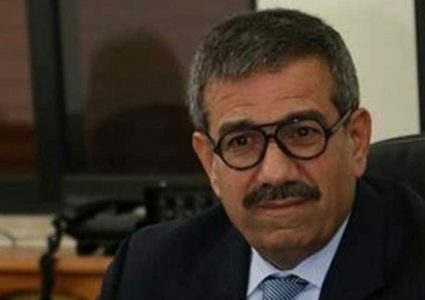The Arab-Israeli conflict has been the greatest challenge facing the Arabs, especially in the countries surrounding Palestine: Lebanon, Syria, Jordan and Egypt. This ongoing conflict has been reflected in the form of the internal situation and its political, economic and social manifestations, and the internal transformations have been linked to the course of this national conflict and its results, under the misleading slogan “No voice is louder than the voice of battle”, i.e. giving priority to confronting the national and nationalist enemy, at the expense of the basic rights of the Arab citizen in the four countries, with differences between one country and another in national priorities.
The Israeli colony was able to throw the Palestinian cause and its refugee consequences into the Arab embrace: Lebanese, Syrian and Jordanian in 1948, and change the title and rights of the Palestinian people represented by the United Nations resolution: 1- Partition Resolution 181 and the two-state solution, 2- Right of refugees to return resolution 194, to Resolution 302, which includes the formation of the United Nations Relief and Works Agency for Palestine Refugees. Note the words relief and works, and thus the issue of the Palestinian people was transformed from a political issue represented by Resolutions 181 and 194, to a humanitarian issue represented by Resolution 302.
Thus, the Palestinian people's issue, which was caused by the Israeli occupation, which was supposed to be responsible for resolving it and dealing with its consequences, turned into an Arab issue that sparked Arab-Arab disputes: Palestinian clashes with Jordan, Syria and Lebanon. It remained so until the late President Yasser Arafat, relying on the results of the first Intifada in 1989, was able to transfer the title, the issue, the struggle and the conflict in exile to the homeland after 1993, following the Oslo Accords, which forced Yitzhak Rabin to recognize the three titles: recognition of the Palestinian people, the PLO and the political rights of the Palestinians. Accordingly, the gradual Israeli withdrawal from the Palestinian cities took place, starting with Gaza and Jericho first, and the return of more than 400,000 Palestinians with the late President Abu Ammar, and the birth of the National Authority as a prelude to the establishment of the independent state.
What is certain is that this agreement was not accepted by the Israeli right and its leaders: Netanyahu, Sharon and Shamir. Netanyahu and Shamir obstructed the implementation of the agreement, and Sharon reoccupied the Palestinian cities in March 2002, which the occupation had previously withdrawn from. Prime Minister Rabin was assassinated on November 4, 1995, and a siege was imposed on Yasser Arafat, who was assassinated and passed away on November 11, 2004, against the backdrop of the Second Intifada in 2000.
These developments in the Palestinian issue, in one way or another, were reflected in the security and stability of the Arab countries surrounding Palestine:
The civil war broke out in Lebanon and lasted for 17 years, between the isolationist forces and the Lebanese National Movement, until the Taif Agreement was reached on September 30, 1989.
The events in Syria exploded in 2011, and continue to this day, and here they are renewed, not by chance, but after the massacres in Gaza and Lebanon and the practice of the harshest types of Israeli hostility and fascism against the Palestinians and the Lebanese.
As for Jordan, it was the most realistic and rational country, as it dealt with its internal situation with wisdom and patience and reached understandings with the political opposition forces.
I will not talk about the Arab countries surrounding Palestine that are paying the price of the Arab-Israeli conflict and participating in it, whether forced or convinced, to protect their national security or to recover their occupied territories: Syria and Lebanon, and the impact of this conflict on their internal systems. However, I find it necessary to talk about the repercussions of this on our Jordanian situation and the state’s options in strengthening internal cohesion and its internal front to confront challenges and respond to entitlements.








Share your opinion
The Arab-Israeli conflict and its repercussions on the countries neighboring Palestine